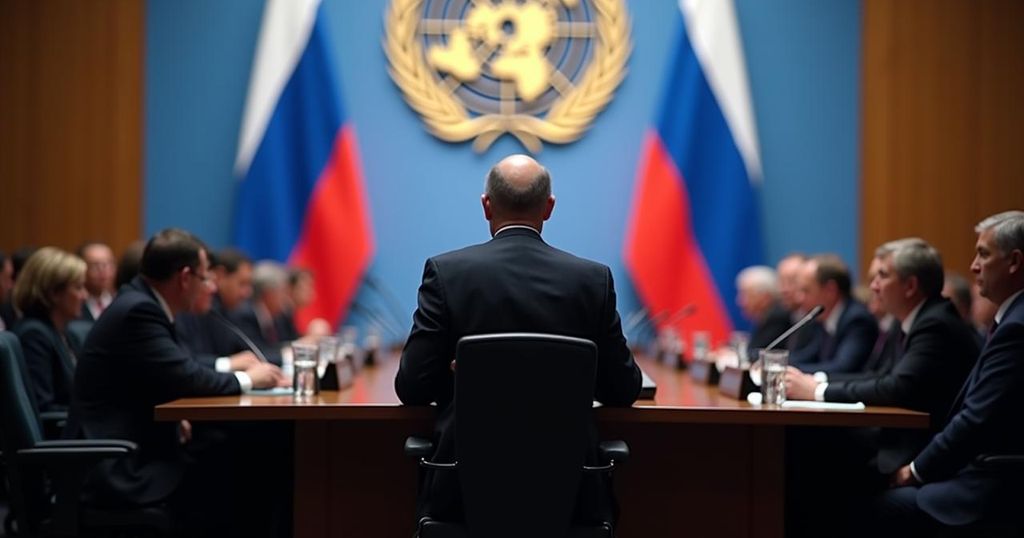Russia Backs UNSC Bids of India and Brazil, Advocates for Global South Representation
During the 79th UNGA, Russian Foreign Minister Sergey Lavrov backed the bids of India and Brazil for permanent seats in the UNSC, advocating for greater representation of the Global South. He criticized Western nations for their imposition of sanctions and perceived hypocrisy in promoting global cooperation while undermining essential values. Lavrov also dismissed Ukraine’s peace proposal as hopeless and called for a reconsideration of the underlying causes of the conflict.
During the 79th United Nations General Assembly, Russian Foreign Minister Sergey Lavrov expressed Russia’s endorsement of India and Brazil’s aspirations for permanent membership in the United Nations Security Council (UNSC). He articulated that achieving a “fairer world order” necessitates an enhanced representation of the Global South within this authoritative body. Lavrov emphasized, “We support our position in favour of the candidacies of Brazil and India, while at the same time taking a positive decision on the well-known initiatives of the African Union.” He further asserted that there should not be any expansion of seats for Western nations due to their already excessive representation in the UNSC. Lavrov’s remarks came amid India’s long-standing quest for a permanent seat, which has garnered international backing, further underscored by Bhutan’s Prime Minister Tshering Tobgay’s support for this initiative. In his address, Lavrov criticized Western nations, claiming they have disregarded the core principles of globalization, asserting that they have instigated a “sanctions war” against numerous countries and weaponized the dollar in the process. He stated that the current global cooperation efforts appear insincere in light of these actions, lamenting, “what global cooperation can we really talk about at a time when the West has trampled all of these unshakeable values of globalization?” Addressing the ongoing conflict in Ukraine, Lavrov dismissed President Volodymyr Zelenskyy’s peace formula as “hopeless” and encouraged Russia’s partners to consider the underlying causes of the conflict rather than the proposed solutions put forth by Ukraine’s leadership. Lavrov’s statements reflect Russia’s strategic focus on reshaping the global power dynamics through the support of emerging economies like India and Brazil, while countering Western dominance within the UNSC.
The United Nations Security Council is a critical component of global governance responsible for maintaining international peace and security. Composed of five permanent members with veto power (the United States, the United Kingdom, France, Russia, and China) and ten non-permanent members, the UNSC has long faced criticism for its lack of representation of developing nations. India’s bid for a permanent seat has been a significant aspect of international discourse, especially since its population, economy, and political influence position it as a vital player on the world stage. Brazil’s aspirations parallel India’s, as both nations seek to enhance their roles in global decision-making and reflect the interests of the Global South. The push for reforms within the UNSC is becoming increasingly relevant as questions of equity and representation loom larger in contemporary geopolitical discussions.
In conclusion, Sergey Lavrov’s statements during the UNGA reflected Russia’s strategic backing of India and Brazil in their pursuit of permanent UNSC membership, portraying it as a requisite for achieving a just global governance framework. His critique of the West and the call for a more inclusive representation of developing nations highlight the shifting dynamics within international relations. As the discourse surrounding UNSC reforms intensifies, the support of influential nations like Russia for candidates from the Global South could signify a pivotal shift in global power structures moving forward.
Original Source: www.business-standard.com




Post Comment